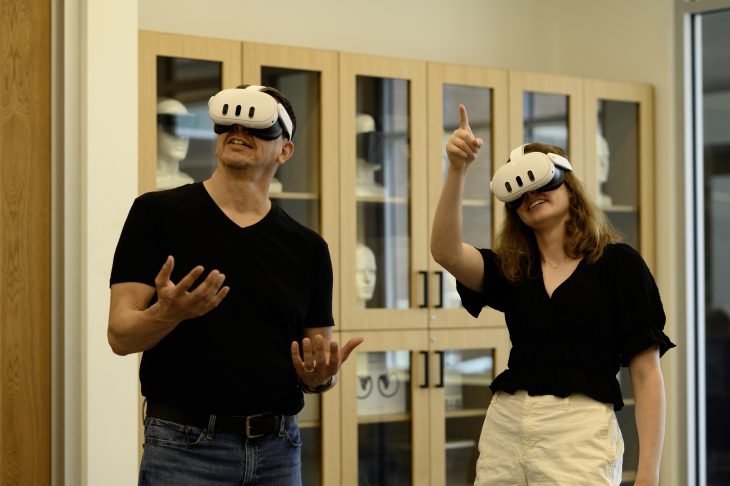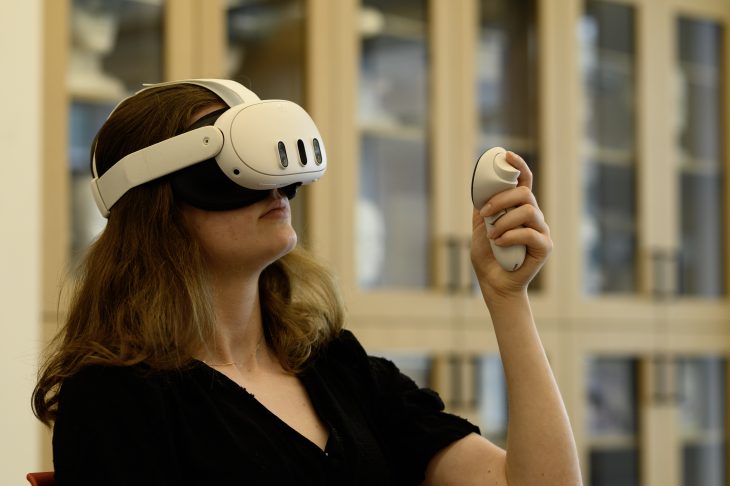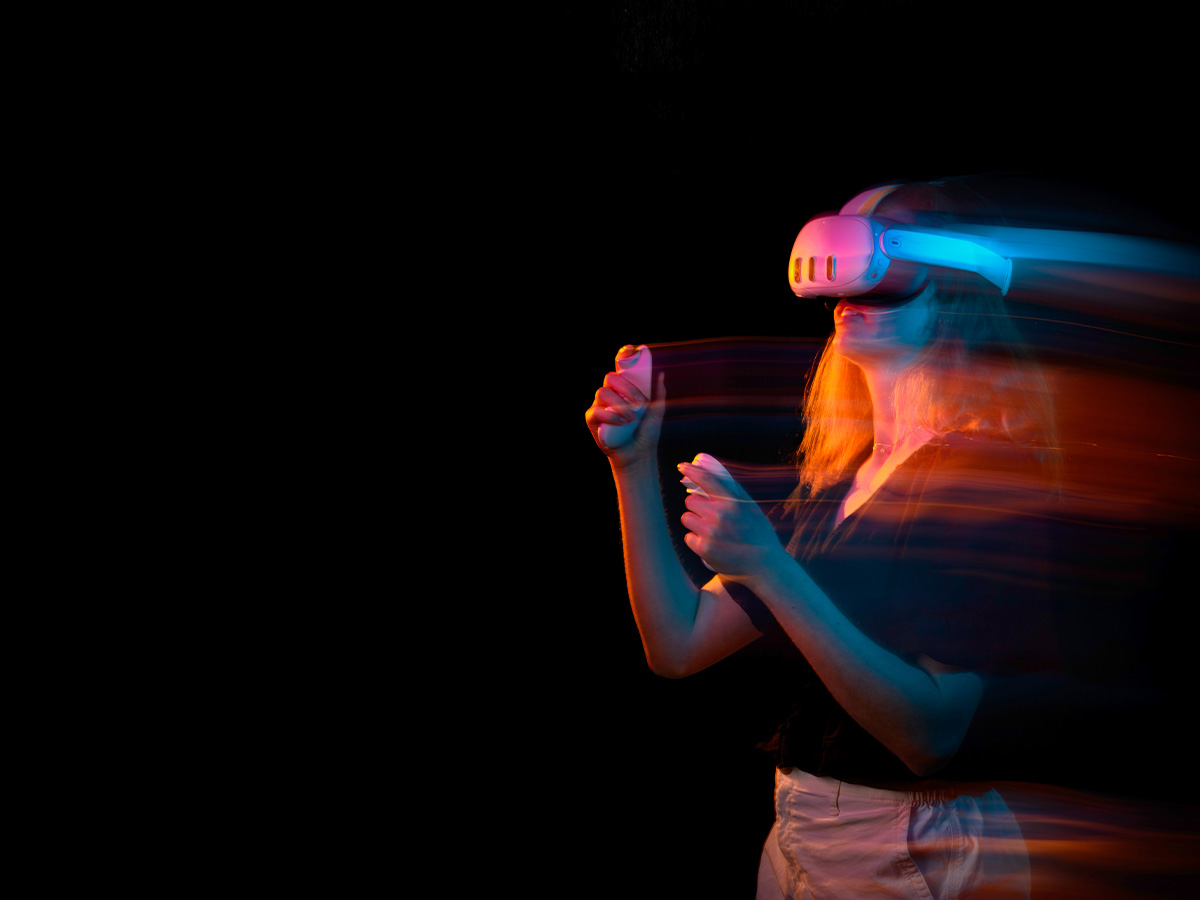For her Honors Program thesis project, Aubrey Spicola ’25 is working to create a “mixed reality planetarium” to help others study the night sky at all hours.
Aubrey Spicola ’25 is majoring in astrophysics, but before coming to Elon, she didn’t even know the order of the planets or the moon phases. So, she decided to take an introductory astronomy class to learn more.
“In the astronomy lab, I looked at the Orion Nebula through a telescope and I’d never seen anything like it. I hadn’t even looked through a telescope before. It just blew my mind,” said Spicola. “I walked away from that night with a feeling that I could do this for the rest of my life.”
Three years later, she’s finalizing her Honors Program thesis project, creating a mixed-reality planetarium to help others study the stars.
Communicating the cosmos
After declaring her major in astrophysics with a minor in mathematics, Spicola got a summer job with the planetarium at the Schiele Museum of Natural History in Gastonia, North Carolina, near her hometown of Denver, North Carolina.
“I was learning how to create live planetarium shows and create scripts for them to do all sorts of things,” she said. “It was also general science communications, and I realized that I enjoyed communicating science to the public and making things more accessible to them by using this planetarium.”
With a desire to blend her planetarium experience and schoolwork, Spicola connected with Anthony Crider, professor of astrophysics, for her Honors Program thesis – working to create a virtual reality planetarium where students and faculty could learn without worrying about weather conditions or the time of day.
“We thought we could bring the planetarium experience to students at Elon rather than relying on nighttime labs or all these factors that come into play when you’re trying to figure out what to do for an astronomy lab,” she said.
Spicola and Crider are currently testing a prototype using Meta’s Oculus Quest 3 VR headset and Unity game engine. Now, the goal is to make the virtual planetarium a “mixed reality” experience where users can see the sky in the headset but still interact with the people around them, a professor teaching a class, for example.
“A planetarium is a very interconnecting experience where you can be in this room with other people learning about the sky and having a planetarium director, or some kind of expert, teaching you about what you’re seeing,” said Spicola. “We wanted to recreate that in a virtual and physical space.”

A cosmic challenge
Developing the software for the planetarium has been a challenge for Spicola, who did not have video game design experience. But the learning opportunity excites her.
“We’re tackling such a big challenge, and I love talking to people about it,” she said. “It is an innovative project, and it has the potential to impact so many people if we can get it developed and have a solid application to share with others.”
She and Crider are learning along the way and may collaborate with some game development experts in the future to help.
“It’s been a great experience, and I’m incredibly grateful that I can have a one-on-one research experience and mentor relationship with Dr. Crider in my undergraduate studies,” said Spicola. “It’s rare for undergraduate students to be able to work with their dream mentor on their own research project.”
When looking for a university, Spicola chose Elon because of the attention undergraduate students receive from faculty and the ability to do undergraduate research – one of the five Elon Experiences.
“Aubrey really values both the beauty of the night sky and the joy in sharing it with other people,” said Crider. “While a lot of experiences in virtual reality can be isolating or ‘unreal,’ Aubrey is leaning into it as a means to help humans to connect to nature and to each other.”

When she graduates in spring 2025, Spicola is looking to continue her interest in astronomy through graduate school, with her telescope set on Cornell University. This past summer, she participated in the Cornell Research Experience for Undergraduates, analyzing pulsar profiles utilizing Python programming language.
“Regarding the project, I would hope that I can reach out to some collaborators or developers and make sure that it gets out to people, that professors and students are able to use it in the classroom, helping students learn astronomy and be inspired by it the way I was,” Spicola said.



